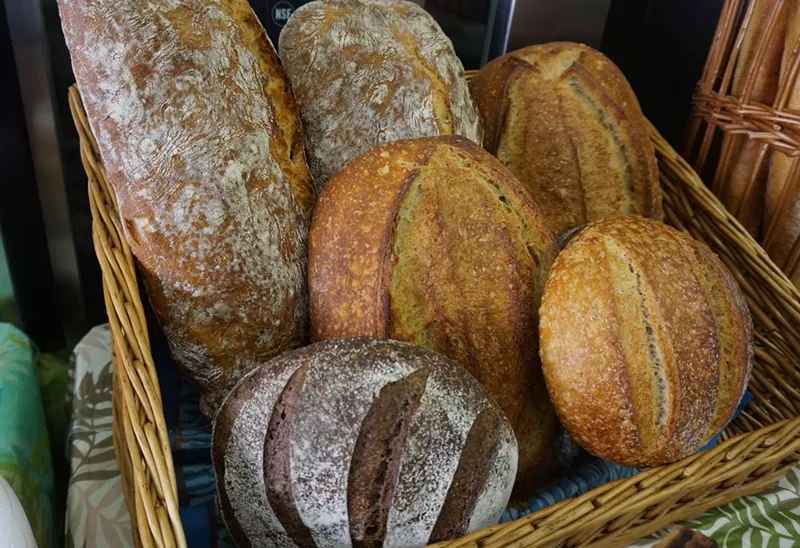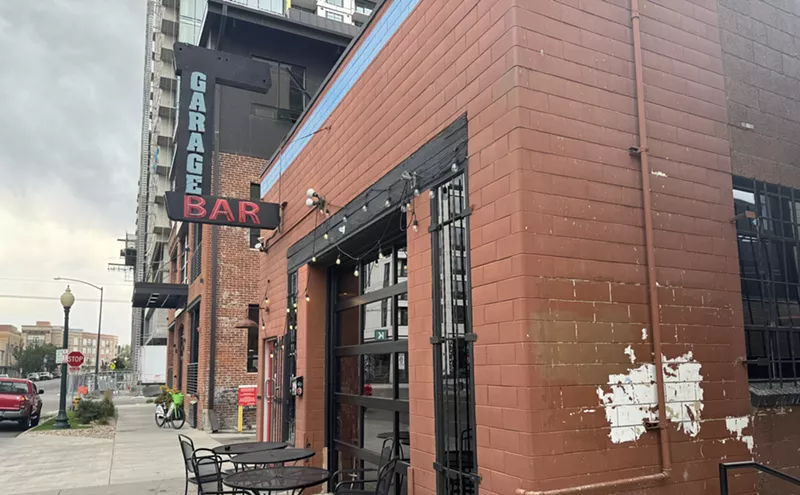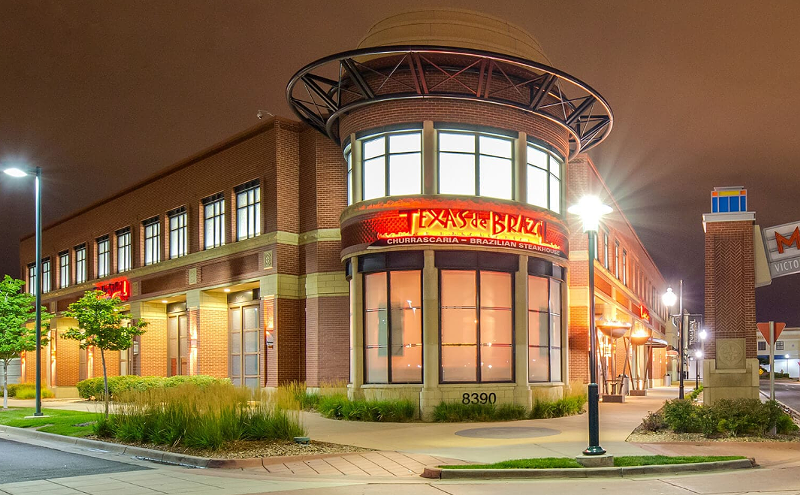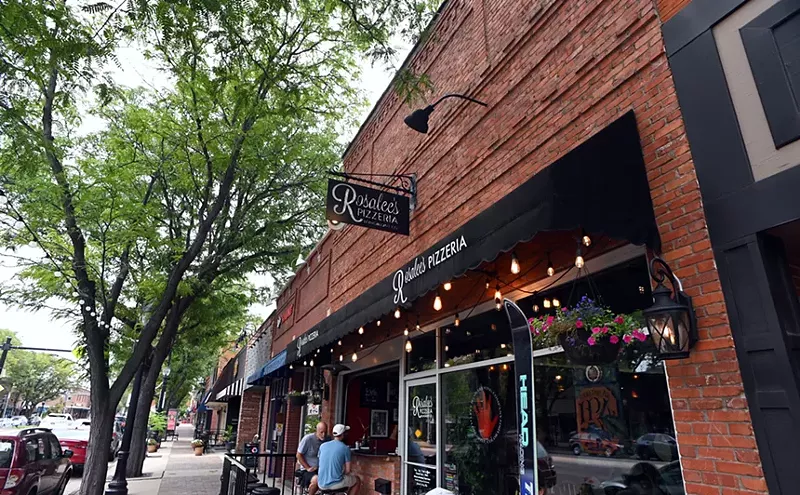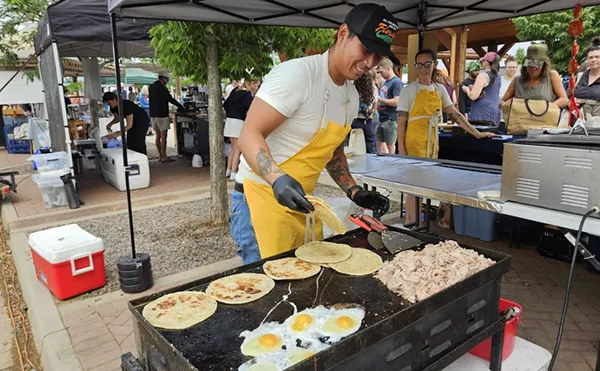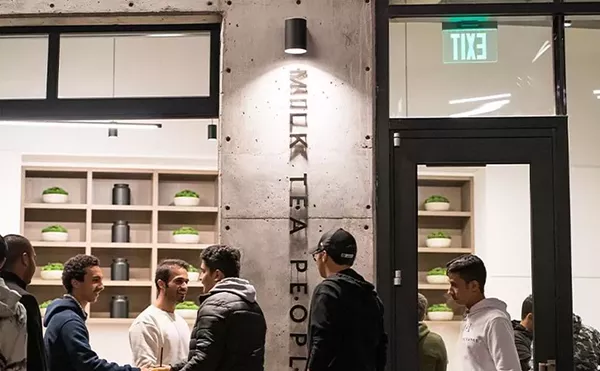Grateful Bread Company owners Jeff Cleary and Kathy Mullen ceased operations at their Golden bakery for three weeks last June because of a labor shortage. After what Cleary calls "a perfect storm" of attrition, health issues and a tight labor market, the husband-and-wife-owned company was down to just four bakers, from a peak of about twenty. Closing up shop was a difficult decision, since it meant endangering long-term relationships with wholesale customers (those restaurants where we get to enjoy Grateful Bread products), but it was the only way Cleary could step away from the bakery floor — where he was pulling twelve- to fourteen-hour shifts — long enough to hire and train new employees.
The closure didn't last long, but the impact was significant, and only recently have Cleary and Mullen felt like business is back on track. In the meantime, they lost both money and sleep as they dealt with increased scrutiny from the U.S. Food and Drug Administration, which oversees wholesale bakeries, and rumors about the status of the bakery. "Everyone thought we were out of business," Cleary explains.
Although Grateful Bread has a small retail shop attached to its commercial bakery where it sells bread and other baked goods to the general public every Saturday, the bulk of its business comes from selling loaves, rolls, buns and baguettes to wholesale accounts. Unlike retail bakeries that are inspected by city or county health departments, wholesale bakeries, even those like Grateful Bread that don't sell products across state lines, fall under the purview of the FDA.
"They used to come for three or four hours every few years," Mullen notes. But then the FDA adopted stricter regulations over the "big eight" allergens: wheat, milk, butter, eggs, soy, peanuts, tree nuts and shellfish. "In fall 2017, they were here for four days," Mullen recalls. "It completely blindsided us."
Increased enforcement of regulations that had been on the books since 2005, with an update in 2011, required the bakery to not only have very specific plans in place for food storage and cleaning of every surface (a rule that Cleary had no problem complying with), but also to have detailed written plans and daily logs to prove to the FDA that the bakery was in compliance. Because of the complexity of the regulations, Grateful Bread spent $15,000 in 2018 to hire a consultant to create the plans and documents that the FDA was looking for. Cleary says he also had to allocate one full-time position just for the daily logging and other paperwork needed to stay in compliance.
Still, the bakery owners say they're glad the regulations are in place and that they can prove to restaurant chefs and owners that their products pose minimal allergen risk. Many chefs aren't even aware that wholesale producers must adhere to FDA regulations, Cleary says, so they end up buying from unregulated bakeries. That's why he's a fan of consumer-education organizations like Good Food 100, which lists restaurants willing to share their supply chain so that customers know exactly where their food comes from.
Because of the temporary closure, the resulting loss of a few key accounts and the added expense of staying in the good graces of the federal government, Grateful Bread's revenues were down at least 50 percent in 2018, and the bakery ended the year in the red. But according to Cleary, the company is now back in the black and has a great staff of about ten bakers, many of whom came from outside the industry and were enthusiastic, if not experienced.
To run a leaner business, Grateful Bread has had to offer fewer customized products to existing customers and can't take on tiny boutique accounts, as it did in the past. "But now everyone is a VIP," Cleary promises.
While Grateful Bread is no longer baking around the clock or showing up with bread samples for every event and festival in the city, Cleary and Mullen remain dedicated to artisan techniques and products, from the three-day fermentation of every batch of dough to the house-milled blue corn that's more about craftsmanship than profit.
This bakery is slowly rising again in Golden.

Audio By Carbonatix
[
{
"name": "GPT - Billboard - Slot Inline - Content - Labeled - No Desktop",
"component": "23668565",
"insertPoint": "2",
"requiredCountToDisplay": "2"
},{
"name": "STN Player - Float - Mobile Only ",
"component": "23853568",
"insertPoint": "2",
"requiredCountToDisplay": "2"
},{
"name": "Editor Picks",
"component": "17242653",
"insertPoint": "4",
"requiredCountToDisplay": "1"
},{
"name": "Inline Links",
"component": "18838239",
"insertPoint": "8th",
"startingPoint": 8,
"requiredCountToDisplay": "7",
"maxInsertions": 25
},{
"name": "GPT - 2x Rectangles Desktop, Tower on Mobile - Labeled",
"component": "24956856",
"insertPoint": "8th",
"startingPoint": 8,
"requiredCountToDisplay": "7",
"maxInsertions": 25
},{
"name": "Inline Links",
"component": "18838239",
"insertPoint": "8th",
"startingPoint": 12,
"requiredCountToDisplay": "11",
"maxInsertions": 25
},{
"name": "GPT - Leaderboard to Tower - Slot Auto-select - Labeled",
"component": "17676724",
"insertPoint": "8th",
"startingPoint": 12,
"requiredCountToDisplay": "11",
"maxInsertions": 25
}
]

